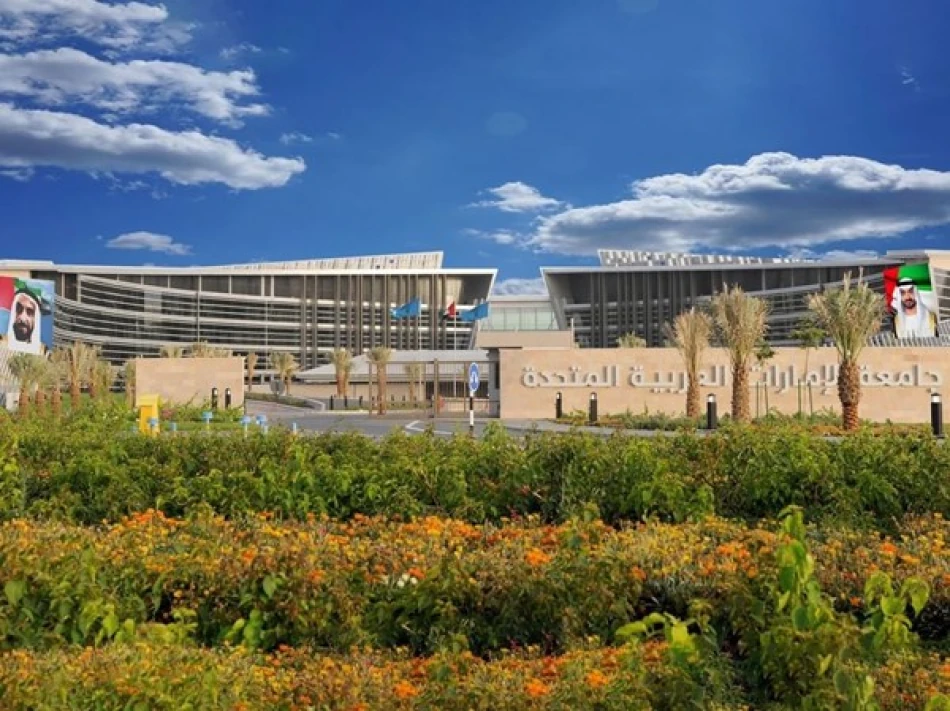
UAE University Solidifies its AI Leadership, Driving Innovation in the Emirate
UAE University Makes AI Literacy Mandatory for All Students in Bold Digital Transformation Push
The United Arab Emirates University is positioning itself as a regional AI powerhouse by implementing one of the most comprehensive artificial intelligence integration strategies in Middle Eastern higher education. Starting fall 2025, every student must complete AI coursework to graduate—a requirement that signals the Gulf nation's aggressive push to build a digitally native workforce capable of competing in the global knowledge economy.
Strategic Vision: Beyond Tech Adoption to National Competitiveness
Dr. Ahmed Ali Al-Raisi, the university's director, emphasized that this initiative reflects a systematic commitment to embedding AI across all university operations—from teaching and research to administrative functions. The appointment of a dedicated Chief AI Officer underscores the institutional weight behind this transformation, ensuring high-impact initiatives receive proper oversight and resources.
This move aligns with the UAE's broader Vision 2071 strategy, which aims to make the country the world's best nation by its centennial. By mandating AI literacy across all disciplines, the university is addressing a critical skills gap that many developed nations are still struggling to bridge.
Research Excellence: 1,000+ Studies Signal Serious Academic Commitment
The university's research credentials lend credibility to its ambitious agenda. Over the past five years, UAE University researchers have published more than 1,000 peer-reviewed studies in AI-related fields within the Scopus database, spanning healthcare, engineering, environmental science, education, and social sciences.
Practical Applications with Real-World Impact
Current research projects demonstrate the university's focus on solving tangible challenges rather than pursuing purely academic exercises. Notable initiatives include neural networks for monitoring concrete infrastructure—critical for a nation built on rapid construction—and predictive models for hospital stays among lung cancer patients, addressing healthcare efficiency in an aging global population.
Environmental sustainability projects showcase particular regional relevance, including machine learning-powered rainfall prediction and hybrid models for ozone concentration forecasting. These initiatives directly support the UAE's climate resilience goals in one of the world's most water-scarce regions.
Global Partnerships: Learning from the Best
The university has established strategic partnerships with leading international institutions including the University of Malaya, Western Sydney University, Texas A&M University, University of Arizona, and Sunway University. This network approach mirrors successful models from Singapore's National University and Switzerland's ETH Zurich, which have leveraged international collaboration to accelerate their AI capabilities.
These partnerships provide crucial knowledge transfer and help UAE University researchers access global best practices while contributing their own expertise in areas like desert technology and resource optimization.
Curriculum Innovation: From Optional to Essential
The mandatory AI requirement represents a significant departure from traditional higher education models where technology courses remain electives or confined to engineering programs. The university is launching specialized degree programs including Bachelor of Science in Data Science and AI, and Statistics and Data Analytics, alongside discipline-specific AI applications.
Tailored Learning Paths
The curriculum design reflects sophisticated understanding of how AI impacts different sectors. Medical students will study AI-supported diagnosis and personalized medicine, while engineering students focus on predictive maintenance and industrial system optimization. This specialization approach contrasts with more generic "digital literacy" programs common in other institutions.
Market Implications: Preparing for the Post-Oil Economy
This initiative carries significant economic implications for the UAE's diversification strategy. As oil revenues become less reliable, the country needs knowledge workers capable of building and managing AI-driven industries. The mandatory requirement ensures every graduate—whether in business, humanities, or sciences—understands how AI transforms their field.
For regional employers, this creates a competitive advantage. Companies operating in the UAE will have access to a workforce with baseline AI competency, potentially attracting international businesses seeking AI-literate talent pools.
Regional Leadership in Digital Education
The UAE University's approach positions the country ahead of regional competitors in preparing for the AI economy. While Saudi Arabia has invested heavily in AI research through NEOM and other megaprojects, the UAE's focus on comprehensive educational integration may prove more sustainable for long-term human capital development.
This strategy also differentiates the UAE from other Gulf states that have primarily focused on attracting foreign AI talent rather than developing domestic capabilities. By building AI literacy from the ground up, the UAE is creating conditions for indigenous innovation rather than dependence on imported expertise.
The success of this ambitious program will likely influence educational policy across the region, potentially establishing new standards for how developing nations can rapidly build AI capabilities through systematic educational reform.
Most Viewed News

 Layla Al Mansoori
Layla Al Mansoori






